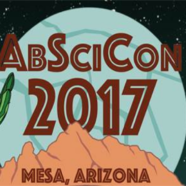Formation of the Solar System and the Origin of Life (Feb. 2017)
The Lorentz Center will be hosting a five-day workshop on the Formation of the Solar System and the Origin of Life between 20-24th February 2017 in Leiden. The workshop will be highly interactive, with individual presentations as well as ample time for interdisciplinary discussions and cooperative research. The goal of the workshop is to foster a new community with an interdisciplinary approach to this research topic. Younger researchers are especially welcome as they are still able to cross disciplines. The main topics will include: The formation of the Solar System. The origin and...
Read MoreCould you be an astronaut?
A brand new BBC Two series is looking for 12 men and women, from all over the UK, to undergo authentic astronaut training exercises. Over a 28 day period in spring next year, participants will tackle authentic exercises, normally achieved by only a select few. From taking a spin in a human centrifuge to experiencing zero gravity, trainees will be evaluated by a team of expert assessors. They will be pushed both physically and mentally to see if they have what it takes for this once in a lifetime opportunity. More details can be found on the programme website, or see the flyer below....
Read MoreASB in the Media: ExoMars
On Wednesday 19th October the ExoMars 2016 Trace Gas Orbiter (TGO) successfully entered into orbit around Mars. There are many links between the ASB community and the ExoMars missions, either directly, or through related research into the possibility of life on Mars. So, it comes as no surprise that some of ASB’s committee members have been out on the media circuit recently, talking all about the Red Planet. This week’s Mars-themed episode of the BBC’s The Sky At Night featured ASB’s Louisa Preston and Manish Patel. Louisa talked about the Mars Utah Rover Field...
Read MoreAbSciCon 2017 – Call for abstracts
Abstract submission is now open for the Astrobiology Science Conference (AbSciCon) 2017, to be held in Mesa, Arizona, 24-28 April 2017. Submission Deadline: January 18, 2017 The theme for AbSciCon 2017 is “Diverse Life and its Detection on Different Worlds.” Mars and icy worlds in our solar system are increasingly recognised as habitable, even as increasing numbers of exoplanets in their stars’ habitable zones have been discovered. The focus is shifting from identification of habitable worlds, to detection of life on them. More information can be found here.
Read MoreBuilding Habitable Worlds 3 (Feb 2017)
Edinburgh will host the third early career astrobiology meeting, Building Habitable Worlds in February 2017. Tuesday 21 February 2017 – UK Centre for Astrobiology, CSEC Seminar Room, Erskine Williamson Building, King’s Buildings, University of Edinburgh Building Habitable Worlds is an annual one-day meeting for early career scientists with an interest in astrobiology, providing an opportunity for networking and expressing your views on the future and direction of astrobiology research in the UK. The day will consist of a morning of talks from participants, while the afternoon will be...
Read MoreExoplanet postdoc & research associate positions at Cornell
Cornell currently has vacancies for postdocs/research associates within the Carl Sagan Institute and the Department of Astronomy that span various themes within the field of exoplanets and astrobiology. Several postdoc/research positions (with Lisa Kaltenegger): https://jobregister.aas.org/node/55109 – review of applicants start Nov 10 2016. DETAILS: The Exoplanet team at the Carl Sagan Institute at Cornell University is seeking Research Associate scholars to work on Characterization of exoplanets, from interior models, over Habitable Zone calculations in 1D and 3D, Mini to Super-Earth...
Read More






